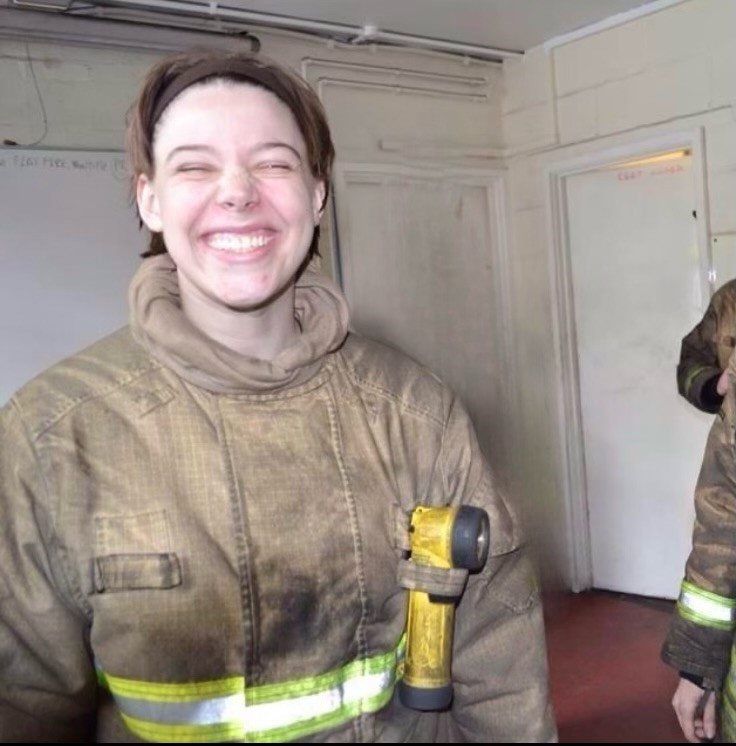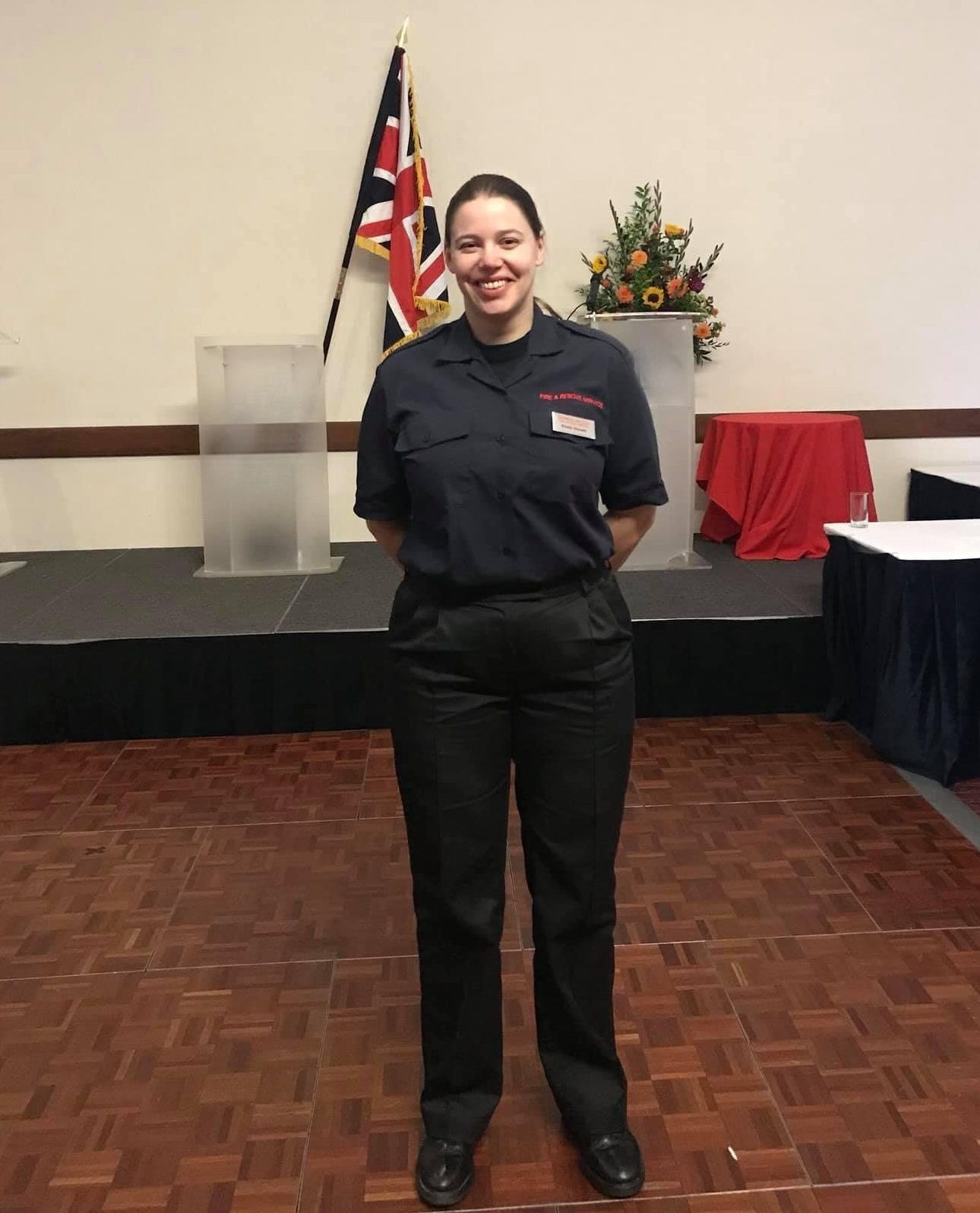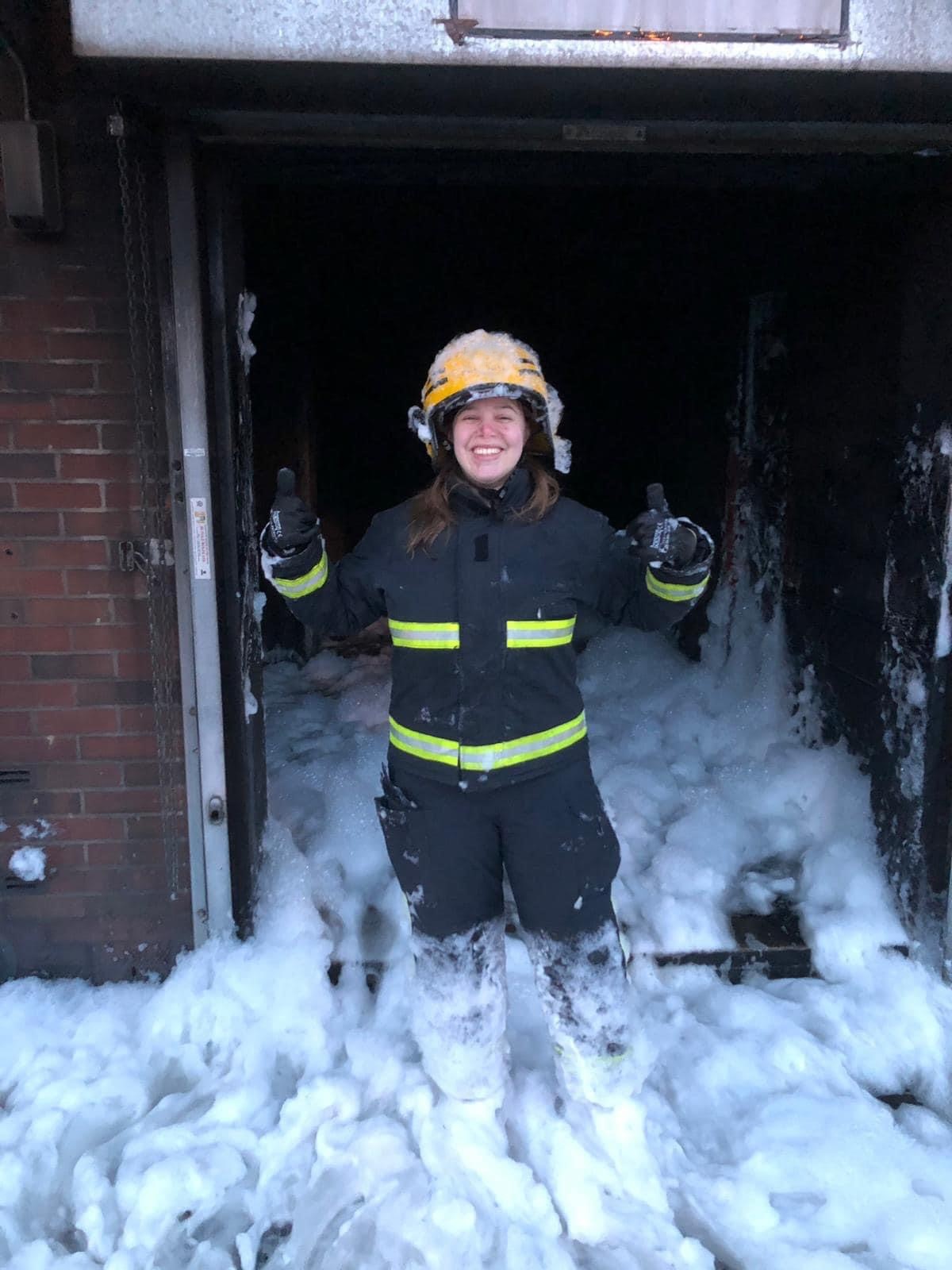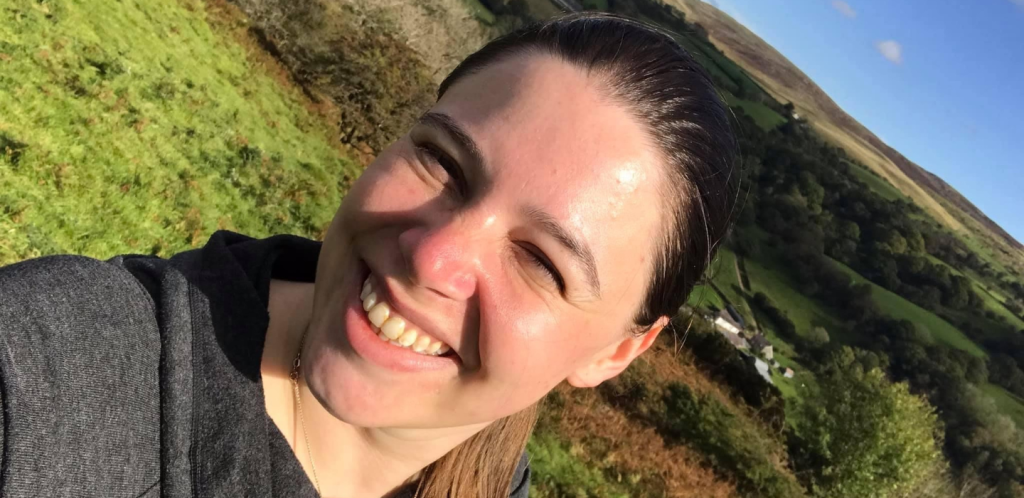Most members of the fire service will have a particular incident that sticks in their mind for years after it happens.
So, when Fire Control Operator Kirsty Vincent witnessed a horrendous car accident while she was off shift – which she struggled to come to terms with for months afterwards – she assumed that was hers and tried to carry on without seeking support.

It was only five years later, when the UK was plunged into a third lockdown, that Kirsty, 32, says she “reached breaking point” and knew she needed help.
Since then, she’s attended a Reset Programme at Harcombe House, our centre in Devon, and later took part in our Trauma Programme – which she says helped her start to rebuild her resilience and find long-term ways of coping.
Kirsty, 32, works in Control and was on her way into work in 2016 when she saw a fatal multi-vehicle crash first-hand. It meant that the hours that followed saw her working to help organise the response to the incident.

While it had an undeniable impact on Kirsty, who used to be an on-call firefighter before her Control role, she tried to carry on with life as normal in the years that followed.
“I buried a lot and I was in denial a lot,” she says. “I didn’t recognise it as signs of PTSD or trauma at the time, they say in the job that you have incidents that stick with you and I put it down as that.
“I closed myself off from people a lot and put up barriers, not letting any emotions show. I kept myself constantly busy and distracted, working overtime and always out – just not letting myself stop and think.

“It wasn’t until the pandemic and several things in my personal life which were quite turbulent, then a couple of incidents on top, which all brought it out and took me to breaking point.”
In 2021, Kirsty was working in Control when her and her colleagues received the call that three teenagers had been involved in an RTC.
“The pandemic for me, alone, was really difficult. I’d moved into a new home in a new county two days before lockdown. My closest friends were an hour away, my family an hour and a half away, and suddenly all my coping mechanisms of keeping busy and seeing people were gone.

“I think that’s why the job in 2021 hit me so hard, because I just had no resilience left to deal with anything.
“I had a very physical reaction to the incident, which I’d never had before. I had massive amounts of adrenaline in my system, I got very shaky, very nauseous, panicky.
“I tried to put a lid on it but eventually excused myself. My manager noticed me leave and saw I didn’t look well and she found me breaking down in the toilets. That was the beginning of it.”
Kirsty’s Group Manager realised she needed support and suggested she get in touch with her GP and mental health professionals locally. Meanwhile, her friend and Crew Manager reminded her about the support we offer too.

Kirsty got in touch with us and, alongside the local support, she was offered a space on our Reset Programme in November 2021.
“I was really apprehensive beforehand and I was still struggling to wrap my head around it all, because it all snowballed,” says Kirsty. “It felt at the time like I lost control of myself… but the programme started to help me build that back up.
“It was very good, but I think my trauma was so severe I knew I needed to follow it up with something more specific.

“I got a lot out of talking to the other participants and the stress workshop in particular I thought was phenomenal.”
Knowing she’d benefit from some more specific support, Kirsty then enquired about attending the pilot of our trauma programme in 2022.
“That was amazing, really in tune with what I needed at the time,” she adds. “The Charity gave me some valuable tools to take home. After the trauma course, I started open water swimming too which has been really good for me.
“Speaking to the other participants was so helpful – many of whom had very different experiences, but were all going through something similar – and it encouraged me to come home and talk about it and be more open.”
With that fresh in her mind, Kirsty began writing a book – Fighting For Control – about her experiences, which she found incredibly helpful for her own mental health.

“It feels good that something positive can come from this experience,” she says. “Shouting about the fabulous support I received from the Charity and raising awareness and understanding of PTSD through my writing will hopefully help other people who are struggling today, and also raise the profile a little of the trauma that control room staff can frequently be exposed to.”
Kirsty is also supporting the launch of our new 24/7 crisis line, which she says is a much-needed resource for all members of our fire services community.
“I think it’s amazing,” says Kirsty. “I was quite fortunate that I had a handful of really close friends I could reach out to, alternating them so I didn’t feel like I was burdening one person.
“Other people might not have that, so to have that professional person on the end of the phone who you can be open with, without any guilt of burdening someone, will save lives – it’s incredible.”
If you’re feeling suicidal, call our Crisis Line on 0300 373 0896.
If you feel you’d benefit from our health and wellbeing support, you can call our Support Line on 0800 389 8820, make an enquiry online or visit the ‘Access Support’ tab in My Fire Fighters Charity.

